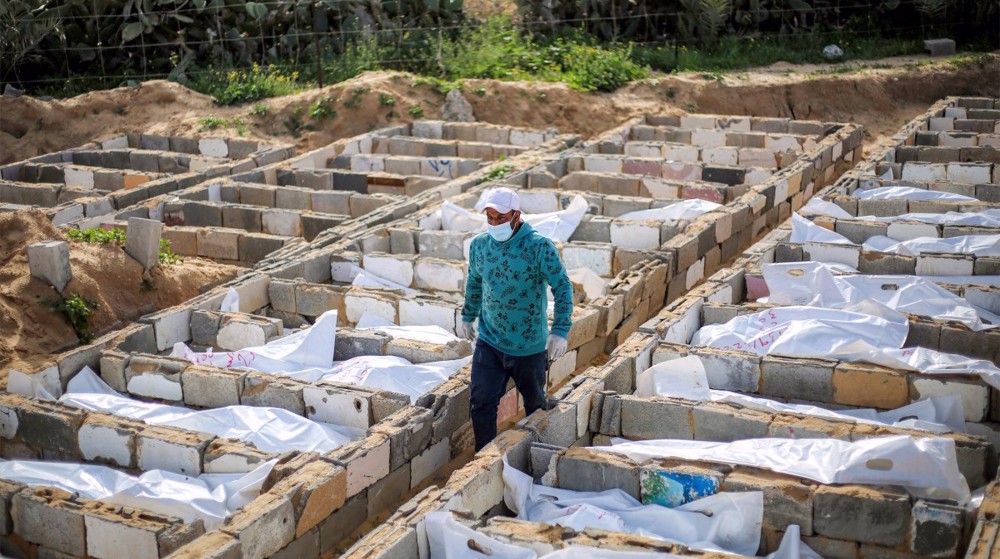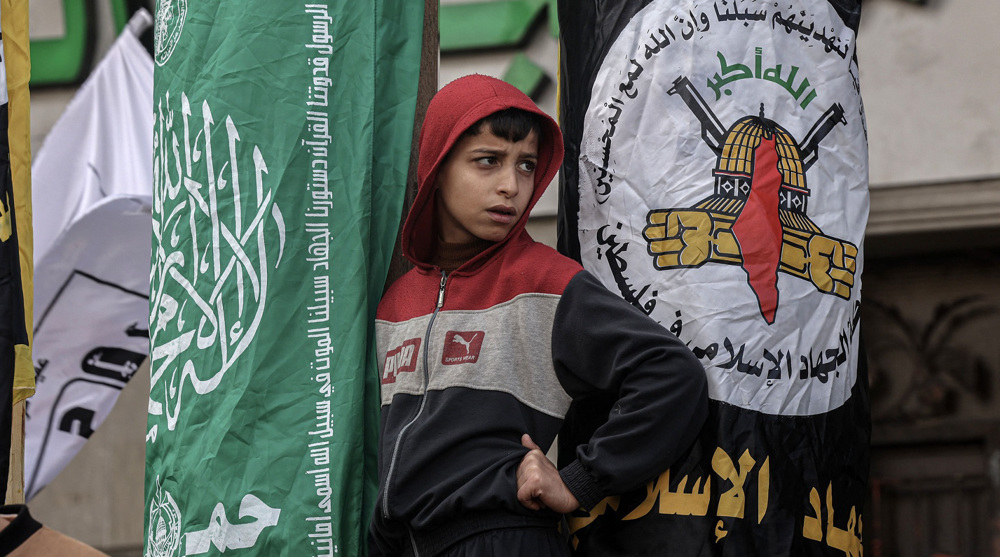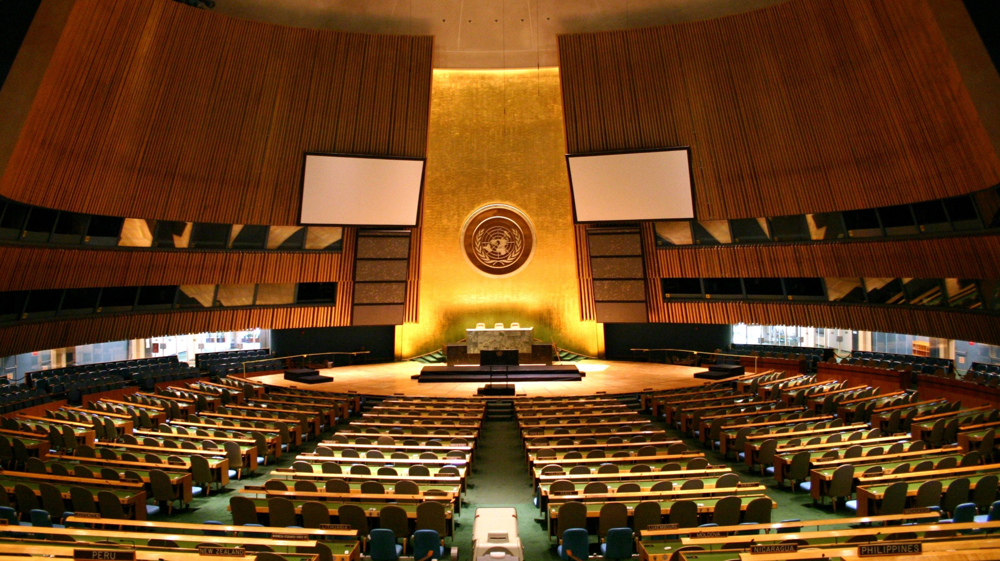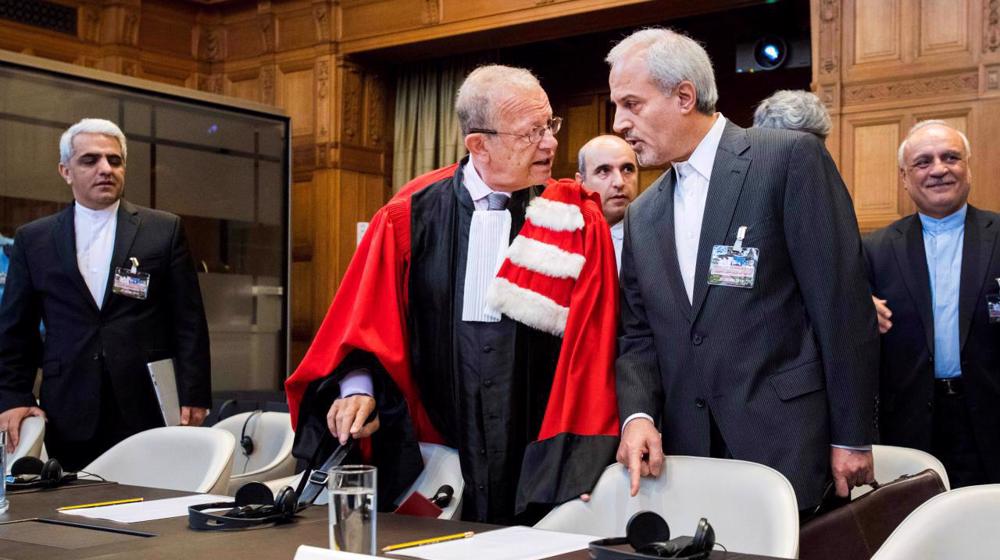UK seeks to block ICJ ruling on Israeli occupation of Palestinian territories: Report
The UK is seeking to block the International Court of Justice (ICJ) from addressing important international humanitarian law matters in a legal opinion submitted to the world court on the legality of Israel’s occupation of the Palestinian lands, a UK daily has reported.
A 43-page legal opinion submitted by the UK to the world court last month, as part of the ICJ’s fact-finding stage, opposes the hearing of the case in the court altogether, the Guardian said.
According to the report, the UK's position is shared by only a handful of the 57 opinions sent to the court by member states and non-governmental organizations.
The ICJ is expected to deliver its advisory opinion to the UN General Assembly on the legal consequences of the “occupation, settlement and annexation” of Palestinian land in the coming months.
This follows a UNGA resolution in December that requested the ICJ’s opinion on “legal consequences arising from the policies and practices of Israel in the occupied Palestinian territory”.
At that time, the Israeli regime and its Western backers including the US and UK voted against the resolution, claiming that it would push the parties to the conflict away from negotiations.
'UK totally endorsing Israeli talking points'
The Guardian reports Palestinian diplomats as well as international humanitarian law experts as saying the UK position ignores not just the fact that Israel’s occupation is "entrenched", but that the situation is rapidly deteriorating.
“This is a rather weak and uninformed document that portrays Israel’s longstanding occupation of the West Bank and Gaza, and its annexation of East Jerusalem (Al-Quds), as a bilateral dispute between two states,” said Dr. Victor Kattan, an assistant professor in public international law at the University of Nottingham and an expert on the Israeli-Palestinian conflict.
“The UK submission is a complete endorsement of Israeli talking points. They are not arguing that this is not the right time to go to the ICJ, because the peace process is working. They are saying the Israeli violations Palestinians point out are not as important as negotiation frameworks from decades ago.” A senior Palestinian source told The Guardian unanimously.
Daniel Machover of Hickman & Rose solicitors in London, who has extensive experience in human rights litigation, told the Guardian: “It is a matter of concern that the UK is seeking to block the court from addressing such important matters, something I am sure it would not do were the court asked to address comparable issues … such as Russia’s occupation of Ukrainian territory.”
Members have until 25 October to make comments on statements to the ICJ submitted by others. If the court accepts the request for an advisory opinion, as is expected, deliberations will last at least a year.
Various UN bodies have so far found that aspects of the occupation are illegal, but there has been no judgment on whether the occupation of the West Bank itself, now in its 56th year, either is or has become unlawful.
The ICJ, based in The Hague, is the top UN court for dealing with disputes between countries. Its rulings are binding but it has no power to enforce them.
The last conclusive action related to Palestine at the ICJ was in 2004, when the court decided Israel’s West Bank separation wall was illegal. However, Israel rejected the ruling.
The fresh ICJ process comes as the regime has intensified its crackdown on Palestinians under what is seen as the most right-wing Israeli Cabinet ever.
Settler violence against Palestinian communities is at its highest level since records began in 2005. This year, more than 200 Palestinians have been killed, with 70 dead in the West Bank city of Jenin alone.
Hamas rebukes Trump's 'Board of Peace' meeting
Iran and Saudi FMs discuss outcomes of latest indirect Iran-US talks
VIDEO | Maritime anti-terrorism drill
UK's police arrest ex-prince Andrew over sex scandal linked to Epstein
Iran elected vice-chair of UN Special Committee on Charter
Iran envoy says decision made to exchange ambassadors with Egypt
Russia continues to develop relations with Iran: Kremlin
VIDEO | Friends of Palestine meet at UN in Vienna














 This makes it easy to access the Press TV website
This makes it easy to access the Press TV website